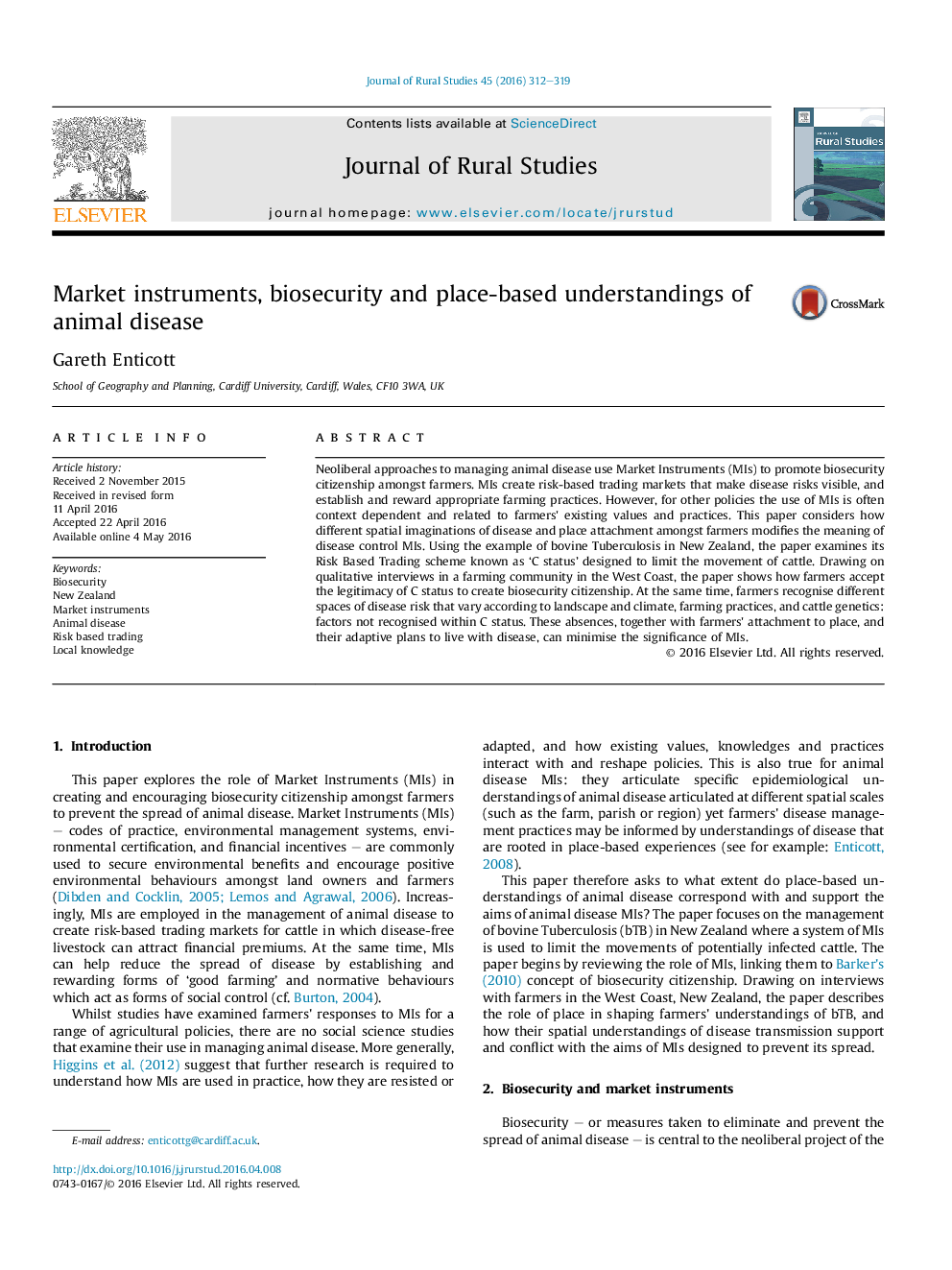| Article ID | Journal | Published Year | Pages | File Type |
|---|---|---|---|---|
| 6545436 | Journal of Rural Studies | 2016 | 8 Pages |
Abstract
Neoliberal approaches to managing animal disease use Market Instruments (MIs) to promote biosecurity citizenship amongst farmers. MIs create risk-based trading markets that make disease risks visible, and establish and reward appropriate farming practices. However, for other policies the use of MIs is often context dependent and related to farmers' existing values and practices. This paper considers how different spatial imaginations of disease and place attachment amongst farmers modifies the meaning of disease control MIs. Using the example of bovine Tuberculosis in New Zealand, the paper examines its Risk Based Trading scheme known as 'C status' designed to limit the movement of cattle. Drawing on qualitative interviews in a farming community in the West Coast, the paper shows how farmers accept the legitimacy of C status to create biosecurity citizenship. At the same time, farmers recognise different spaces of disease risk that vary according to landscape and climate, farming practices, and cattle genetics: factors not recognised within C status. These absences, together with farmers' attachment to place, and their adaptive plans to live with disease, can minimise the significance of MIs.
Related Topics
Life Sciences
Agricultural and Biological Sciences
Forestry
Authors
Gareth Enticott,
